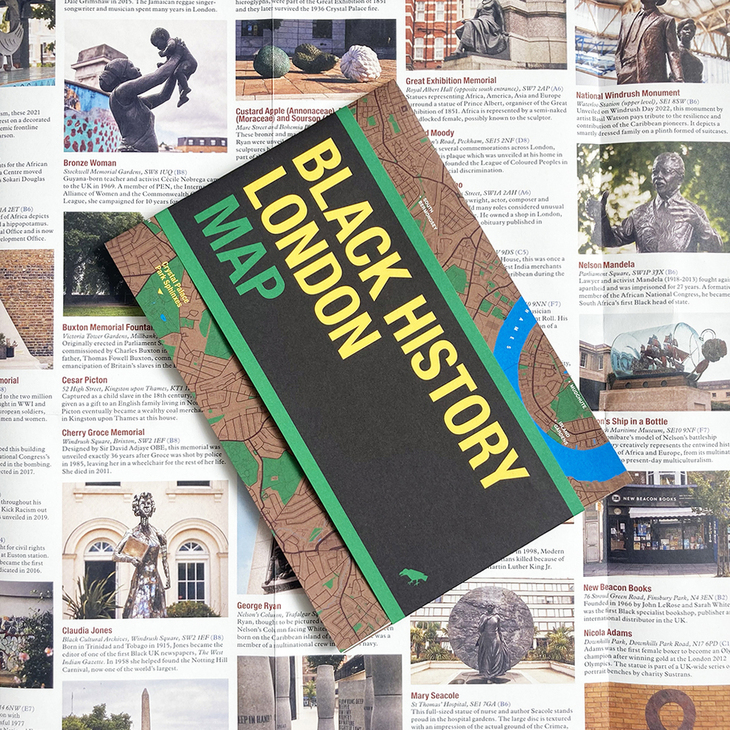
London may still have a way to go, but in recent years, the city has got better at celebrating and commemorating the Black figures who've helped shape it.
When it was unveiled outside St Thomas' Hospital in 2016, the life-size likeness of Crimea nurse Mary Seacole became the first statue in the UK of a named Black woman. A figurative sculpture of Notting Hill Carnival founder Claudia Jones appeared outside Brixton's Black Cultural Archives in 2021. Earlier this year, Larry Achiampong's Pan African Flag for the Relic Travellers' Alliance (Union) was affixed to the entrance of Westminster station, giving new meaning and identity to the iconic tube roundel.
Times are changing.

All of these hat-doffs, and dozens more, appear in the Black History London Map — a pocket-sized compendium compiled by librarian Jody Burton and tour operator Avril Nanton.
Scouring the city for physical landmarks which tell Black British stories, the map gleans everything from Parliament Square's Buxton Memorial Fountain, which celebrates the abolition of slavery; to the Battle of Lewisham mural at Goldsmiths; to New Beacon Books near Finsbury Park, a shop that's been selling books by Black writers since 1966.
Some of London's Black history hides in plain sight; while Horatio Nelson has rightly come under fire for his vigorous defending of slavery of late, many won't have spotted George Ryan — a Caribbean member of Nelson's crew — depicted mid-battle on one of the Nelson's Column tableaux.

Meanwhile, at Hackney Central, a giant custard apple, breadfruit and soursop inhabit the pavement — strong yet subtle symbols of the Windrush Generation.
The map is inevitably pocked with tragedy, much of it still raw. Take Deptford's Stephen Lawrence Centre, named for the young man murdered by racist thugs in 1993. Or the humble memorial to Cynthia Jarrett, who died of a heart attack when police barged into her Tottenham home in 1985, sparking the Broadwater Farm riot.

Says Jody Burton: "I think it's important that all people learn about Black history as this is British history. An honest, full narrative needs to be told. It is a challenging history, which for too long has been told by the
winners of history, exploration for one was exploitation for the others over hundreds of years."
Adds Avril Nanton: "Most often when Black history is spoken about, it's from the American perspective. But I believe that learning and owning our own Black British history is just as important."

Given the skyrocketing profile of Black Lives Matter and the positive progress ebbing from it, we can assume that in five or 10 years time, Black History London Map will be due a reprint, thanks to a slew of new Black stories being told in stone and metal across the city.

Black History London Map, published by Blue Crow Media, RRP £9.
If this map piques your interest, you'll also want to know about the Black History Tube Map, released as a collaboration between the Black Cultural Archives and TfL last year.




